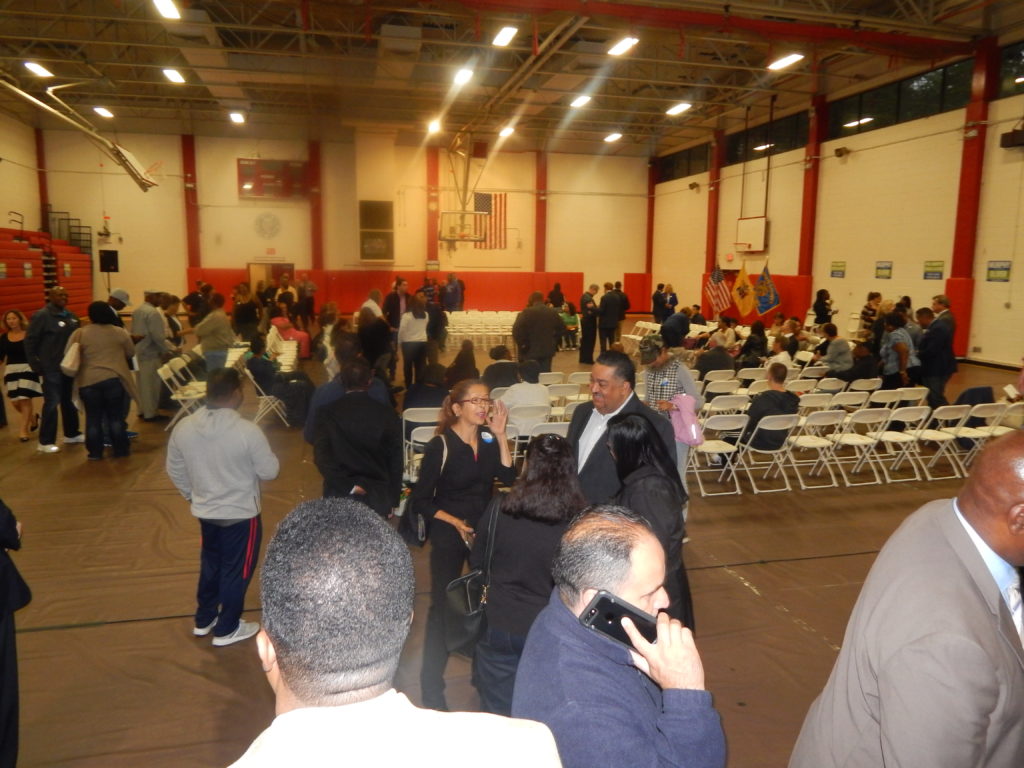New Jersey Finally on Path to Fairer Elections

By Jill LaZare
Now that the primary is over, it is a good time to stop and take a look at a recent judicial ruling in what may prove to be the most important lawsuit in New Jersey election law history. New Jersey may finally be inching towards fairer elections and the possibility of cracking open the stranglehold that political bosses have had on our state.
Specifically, Federal Judge Zahid Quariaishi ruled that a lawsuit challenging the constitutionality of what is known as the “county line” will move forward. In the year since the lawsuit was filed by former candidates and the New Jersey Working Families Party, the court has effectively denied a total of seven motions to dismiss the case.
For those who may not be aware, the “line” is typically a column on the ballot, listing the candidates endorsed by Democratic or Republican party bosses. “Line” candidates receive preferential placement on the ballot. As alleged by the plaintiffs and as history has proven, it is virtually impossible for candidates to win elections without being on the “line.” Consequently, winning candidates are beholden to those bosses who control the “line.” And it isn’t just a matter of winning elections: those same party leaders end up controlling who is awarded public contracts, who gets lucrative appointments, who serves in our state legislature, and on and on. There is simply no getting around their power.
But this might be about to change.
The Court noted: “New Jersey is the only state in the country that organizes its … ballots by bracketing groupings of candidates rather than by listing the office sought followed immediately by the names of all candidates in a column.” This uniquely New Jersey phenomenon has given rise to the “line.” The result, plaintiffs allege, is that while it protects those candidates who wish to “associate” by being put on the same line, it undermines those who cannot, or wish not to, associate with those on the line.
The opinion further states:
“Plaintiffs argue that this freedom to associate impedes their rights to not associate or substantially burdens it. There is a grain of truth in that statement.
“If there is a consistent benefit for those who bracket [on the “line”] and a consistent detriment for those who do not bracket, then the statute creates a cost to a candidate’s right to not associate. . . the Court finds that the Bracketing Structure imposes a moderate burden on the right to associate.
“Accepting Plaintiffs’ allegations as true, their First Amendment rights (right to vote, equal protection and freedom to associate) have been meaningfully affected by the Bracketing Structure.
“Plaintiffs sufficiently allege that the Bracketing Structure may favor or disfavor a class of candidates or may dictate electoral outcomes.” Indeed.
Election law is unique in that there is an extremely short time frame to adjudicate an issue. Here, however, the Court found that the claims regarding the impact of the “line” in a past primary are not moot under the “capable of repetition yet evading review” doctrine. In short, the Court found that the incidents giving rise to these claims, while in the past, are likely to recur and, if addressed, can be remedied with this litigation.
I have been a candidate who has been on the party line and won my primary, and who has been denied the party line and lost. In truth, there is no one who contends that the party line is unimportant in New Jersey politics. All candidates and political insiders know that ballot position effectively dictates who wins primary elections. Thus, those who hold the power to award the party line hold power over all of New Jersey’s government.
This rule by party bosses in New Jersey has been almost absolute. Let’s keep our fingers crossed that this litigation will finally bring it to an end.
Jill LaZare is an attorney and an activist who has run for state office and worked on numerous presidential and local campaigns.






We also need to investigate the computer voting systems, ballot counting, and ballot proofing in New Jersey as the last gubernatorial election showed. Phil Murphy was behind Jack Ciattarelli at midnite with 100% of the vote in, yet Jack somehow lost by an additional 14,000 votes, which accounted for 1.4% more votes?!?! Certain numbers of ballots also miraculously appeared surreptitiously the next day in Democrat-run Essex and Bergen Counties. Unless and until we can get our state elections under control and made totally transparent, and not have ballot counting after Election Day, we will continue to have problems with our election process in N.J.--so long as the Democrats continue to run and win, whether they did so or not.
Everything I read is from the point of view of the candidates who are not on the county line. As a Bergen County voter, the county line benefits voters and provides them important information when voting. How does someone get the county line? In every district in every town, there are 2 district representatives elected by voters. Those district representatives, represent their districts at the county committee, who vote for those running for office and the winners get the county line. I want to know who those candidates are and I want it to be easy to see who they are. That’s the county line. Of course I will vote for the candidate I choose, but there some offices I may not have a lot of information on, but I can see who was selected by the county party during their convention and won the support of the majority. Breaking that up would I’m sure be a great benefit to the candidates not on the line because without the line people like me would have less information on hand when voting. I want to know who went through the county committee vetting process and won the convention and it should be easy to see.